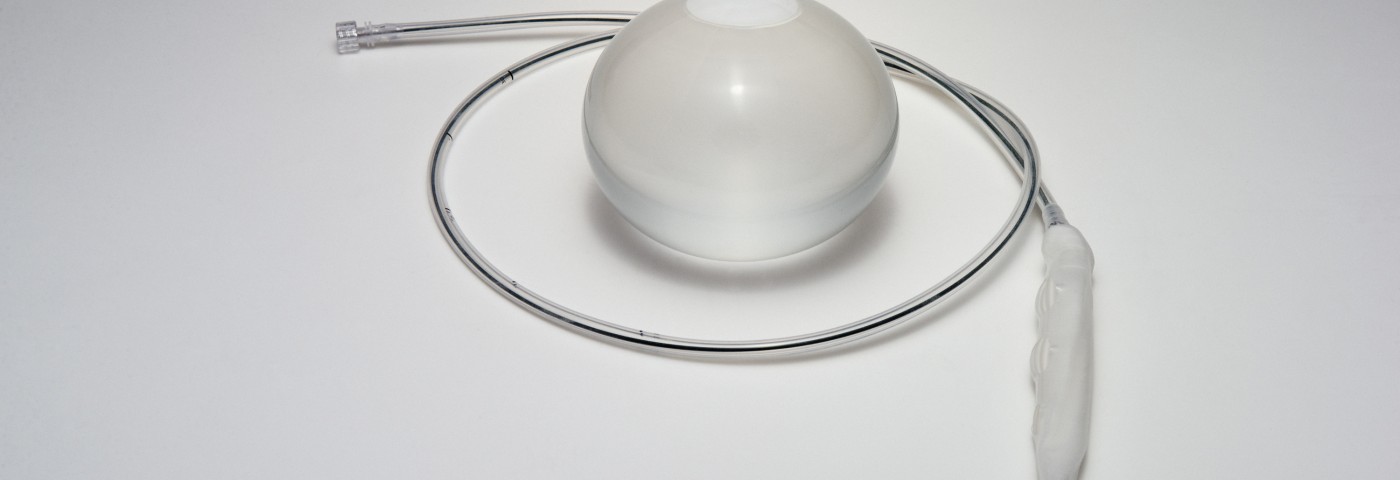Barnes-Jewish West County Hospital and Washington University School of Medicine are offering the recently approved intragastric balloon therapy as a nonsurgical alternative for obese adults. Gastroenterologists are offering a selection of two intragastric balloon systems to overweight patients who have not been able to achieve acceptable weight loss through lifestyle and diet changes.
Patients can opt for the ORBERA™ device, or the ReShape™ Dual Balloon system. Both balloons are potential substitutes for bariatric surgical procedures in patients who need to lose weight for health reasons but either are not candidates for surgery or are unwilling to undergo surgery. The balloons are placed in a patient’s stomach during an outpatient procedure that usually takes 20 minutes. The person in under conscious sedation (light anesthesia) during the procedure. An endoscope is inserted through the mouth into the stomach carrying the uninflated balloon, which is precisely placed in the stomach and then inflated with saline solution.
“Despite the fact that bariatric surgery is very effective, there are some people who just don’t want it or are not surgery candidates,” Dr. Shelby Sullivan, assistant professor of medicine and director of bariatric endoscopy in the Division of Gastroenterology at Washington University, in St. Louis, Missouri, said in a news release. “During the clinical research we conducted, we found that many patients equate surgery to an admission of failure, but they see the balloons more like a tool to help with weight loss the way glasses can help improve eyesight.”
The balloon remains in the stomach for six months, helping patients to feel full and satisfied with less food. It does not change or alter the stomach’s natural anatomy. After six months, the balloon is removed in a second outpatient procedure that typically also takes 20 minutes. During the time that the balloon is in the patients’ stomach, and for the six months after it is removed, patients receive comprehensive counseling and support services that include frequent in-office coaching sessions to encourage new lifestyle habits and lasting results.
“When we take out the balloon, the program team helps patients maintain positive behavior changes they made while the balloon, or balloons — depending on which system a patient chooses — were in the stomach,” said Dr. Sullivan.
After twelve months, patients can decide to enroll in a follow-up program designed to help them avoid regaining lost weight.
“Even after bariatric surgery, some surgery patients end up regaining significant amounts of weight,” noted Dr. Sullivan. “So there’s no perfect therapy out there.”
The two systems were approved by the U.S. Food and Drug Administration in 2015 for adult obese patients who have a Body Mass Index (BMI) of 30–40 kg/m2, and who have been unable to lose weight through diet and exercise.
Currently, intragastric balloon therapy is not covered by insurance, although some insurance companies pay for a pre-procedure visit to the doctor.
Dr. Sullivan and team members are holding monthly information sessions concerning the therapy at Barnes-Jewish West County Hospital, located on the Washington University campus. More information is also available by calling 314-542-9318 or 844-542-9378 (toll-free), or by visiting the program’s website.


